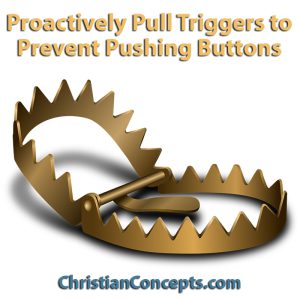Faith is first of all unwavering trust in a person: Jesus Christ. True faith means that trust exists and remains whether or not what you’ve asked for is fulfilled. This kind of faith comes only from your relationship with Jesus, made possible by the Holy Spirit.
Faith and Doubt can Coexist
Your faith doesn’t have to be perfect. Its strength doesn’t need to be at 100% for it to be effective. You can struggle with doubt as a believer. Your struggle is also an opportunity to strengthen your convictions. God wants us to trust the person (Jesus) first, not a specific outcome. This is important because we can’t predict God’s will in many of life’s details.
Having faith in God when He answers your prayers isn’t enough. You need faith in God even when He doesn’t answer your prayers the way you expect Him to. Of course, whenever you ask for wisdom, forgiveness, or other things God is eager to give to you, then you must believe and not doubt:
…if any of you lack wisdom, you should pray to God, who will give it to you; because God gives generously and graciously to all. But when you pray, you must believe and not doubt at all. Whoever doubts is like a wave in the sea that is driven and blown about by the wind. If you are like that, unable to make up your mind and undecided in all you do, you must not think that you will receive anything from the Lord.
James 1:5-8 GNT
What is it that you must believe? The work of God is to believe in Jesus (John 6:29). To call yourself a believer, you must know who Jesus is. You must believe He is exactly who He says He is. God is all-powerful. God is in complete control. God is wise. God is good.
Have Faith in What God Wills
If you want to improve your faith, consider asking God for the wisdom to know the difference between a prayer He will always answer with yes and others which are maybe or no. Wisdom, patience, maturity, the ability to love… God always grants these. Praying for your basic needs is likely to result in a yes. For example, you could pray that God would meet your transportation needs (likely) or you could pray for an extravagant car (less likely, but depends on why you’re asking). How this works depends on your heart–how you prioritize your life.
God answers prayers according to His sovereign plan, but He also answers them in the context of His relationship with you. Your biological father will give you good gifts if he knows and cares about you. Your heavenly father will also give you gifts appropriate to your spiritual maturity, your connection with Him, and His purposes (Matthew 7:11).
God, being good, gives good gifts. Therefore, there is never a reason to give up your faith. Faith that God is real and that He rewards those who seek Him is essential (Hebrews 11:6). Don’t give up on God!
Perhaps the times when you doubt God are the times when you are experiencing a deep sense of betrayal. God hasn’t betrayed you, but it can certainly feel that way. Even then, God would have you trust Him and continue to believe He is good and has something good in store for you.
Then you can say like Paul:
I have fought the good fight, I have finished the race, and I have remained faithful.
2 Timothy 4:7 NLT
How is your faith? It can be unwavering only because God is unwavering. God has a plan for your life. As a believer, your life always has a happy ending.
Learn more about the quality, not quantity of faith.
Image by Jonny Lindner from Pixabay
Last updated 2023/11/19
































